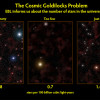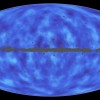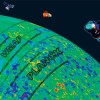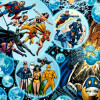Inflationary theories say the laws of physics should be different in other parts of the universe. Some have claimed to have observed evidence of variation. Now, in a high-precision study using a giant telescope (Arecibo; it’s the one James Bond and Natalya Simonova discover in GoldenEye), scientists observed no variation. But the universe may be […]
Out of this world: Are the laws of physics different in other parts of the universe?





